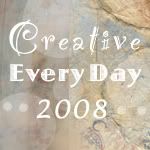Unschooling Interview
A few months ago, a student at Columbia's Graduate School of Journalism contacted me and wanted to know if they could ask me some questions about unschooling for research they were doing. Here are her questions, and my answers.
1) You address a lot of the day to day in your blog, but what are the biggest hurdles to starting?
For me, it was changing the way I view education, school and learning. Real learning...learning that truly means something to an individual. Learning has nothing to do with passing or failing, dividing the world up into subjects or taking a standardized test. That's not learning. Education is not telling students that today is June 1 and someone decided that you need to learn about dolphins and when you're going to be tested to see if you can regurgatate all the facts back. And if you do, bingo!...you're learned!
For me, seeing the learning in everything and not dividing the world up into educational and not educational has been very helpful.
In Guerilla Learning, by Grace Llewellyn she says; "Real learning requires meaning. Meaningless information can be memorized and repeated, but it's not learning. For information to have meaning, there must be meaningfull context for the information. That's why most people, unless they are really good at absorbing and retaining meaningless data, forget most of what they learned in school.In school, subjects are artifically seperated from each other. It's as if schools believe that if you give kids one tree at a time, year after year, they will save them up and make a forest out of them. School can sap kids interest in learning, confuse them with so many meaningless "trees" that it may take years to recover and begin to see the "forest" again. School can simply eat up so much of their time that there's none left for the real learning, for spontaneous exploration or free play. Instead of discovering their unique gifts and talents, many learn to see themselves as "disabled" if they don't keep up with the traditional school systems standards of measurement."
2) And what are the unexpected benefits you find along the way?
For my children, one of the unexpected benefits is how they (especially my youngest) are starting to question things more. They're interested in knowing things. They're curious. They're starting to see that learning is not something you do just to pass a test. For me, an unexpected benefit was how much I would change through this journey.
3) How has homeschooling helped your children blosom?
Unschooling is allowing them to be free and they're blossoming in that freedom. They're starting to become more sure of themselves, which isn't hard to do when you're not in school. There's nobody telling them that they're failures so their confidence in themselves is soaring. They are starting to see that life is not sectioned into educational and not educational and that they're interests take them places that school could never.











0 comments:
Post a Comment